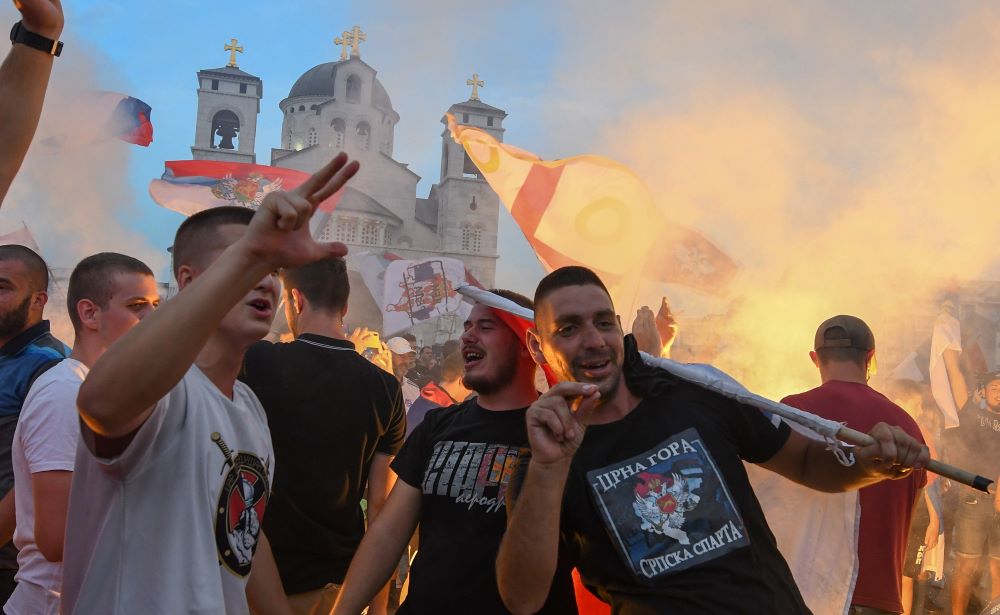Nationalism, often primitive in its arrogance and manifestation, can provoke a similar response of those endangered, which cannot be justified and it is everyone’s obligation to unequivocally stand in the way of that.

Ivan Radojicic
The global expansion of nationalism as an ideology rose alongside the new-age political ideas which recognize it as the leading value to profit from. The first political realizations of this ideology are found in the American and French revolutions, where nationalism was antagonistic towards the absolutist rule of the monarch, and was in the service of the nation’s citizens.
As is usually the case with almost all ideologies that become crazy daughters of wise mothers in the political contexts of everyday power struggles, nationalism ceases to be the reasoning behind a joint struggle against absolute monarchy and turns into rivalry of emerging nation states.
The problem grows more complex when the idea of the nation-state, once again for purely political reasons, is imputed by an archaic pre-modern ethnic prefix that will build its supremacy on racial, religious, mythomaniacal, and similar differences. And so nationalism becomes a global norm, though with formal and technical nuances.
Modern understandings of the national feeling as a non-dominant aspect of self-realization, created within the global idea of civil society, will have different effectiveness in different cultures. There are numerous reasons for this, and one gets the impression that we will not be any closer to the truth by simply listing the causes. What’s even more interesting is the problem of small states like Montenegro, which are even more endangered by the fact that they are small, and their multi-ethnic sensitivity and civic orientation are more fragile.
Especially since Montenegro has been cultivating imported nationalism for decades, ie the colonising, assimilative, anti-European form, and I dare say its most vulgar form, which not only recognizes and sees itself as dominant, but denies and humiliates everything that’s different and Other. Its strength is in the negation of diversity and its essence in the ritual repetitiveness of traditional customs. Often primitive in its arrogance and manifestation, it can provoke a similar response of those endangered, which cannot be justified, and it is everyone’s obligation to unequivocally stand in the way of that.
In that sense, the position of the Irish Nobel laureate William Butler Yates, from exactly one hundred years ago remains relevant today. He responded to accusations of nationalism by the European intellectual circles by saying that he was indeed a nationalist – though only in Ireland, and exclusively for defensive purposes. It’s up to you to decide whether the awakening of national consciousness is a necessary episode in the historical search for modern civil society, or if it can be easily bypassed.
Another problem the small guys face is the lack of cultural continuity, which is compensated for by invention of the aforementioned traditions through certain rituals and symbols that create continuity with the past. This act seeks to stabilize certain forms of behavior and thought that draw their roots from various archaisms and are usually in conflict with modern values. As key irrational elements of this type of manipulation, theses about the alleged endangerment of the people and its tradition are most effective. The integrative element and the emotional charge it produces within the masses can often take dominance over civic values and produce a social vacuum in which the status attributed by birth or baptism becomes the main, and most often the only weapon. Or as the writer Miljenko Jergović vividly explains in one of his books: ‘A man is a Croat only if he does not have to prove it – especially by not being a Serb – because the moment any evidence is asked of him, every man is actually a Jew. It’s just that other Jews are far away, and they are not aware of his Jewishness.’
Mr Ivan Radojicic, sociologist



Leave A Comment